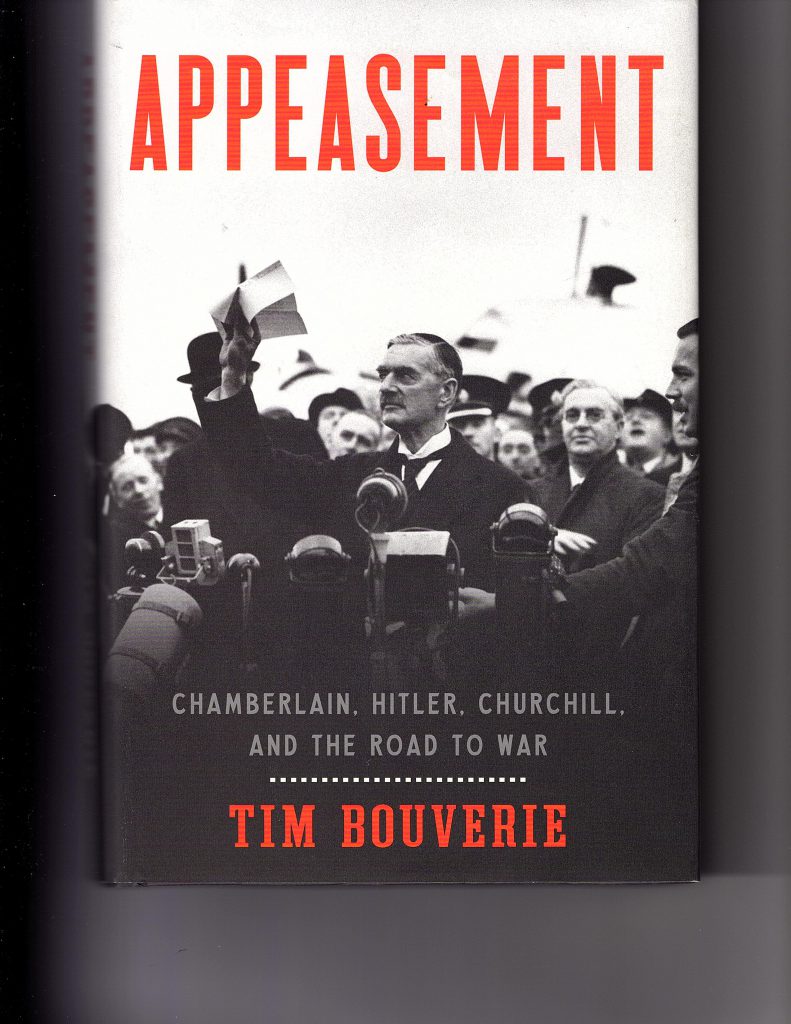
The New York Times chose to present the following as its leading letter in the Book Review dated August 4, 2019:
“In her review of Tim Bouverie’s ‘Appeasement: Chamberlain, Hitler, Churchill, and the Road to War’ (July 20), Lynne Olson gives a number of reasons for what happened at the Munich conference, among them Chamberlain’s ignorance of foreign policy. However, she omits an underlying motive for that sordid episode, namely anti-Communism.
Throughout the 1930s, Conservative political opinion in Britain mostly saw Nazi Germany as a buffer against Marxism. Such views played as much of a role in ‘appeasement’ as did Chamberlain’s limitations and naivete. That anticommunism was a key component of European fascism, alas, is a truth that has been long forgotten.”
(Gene H. Bell-Villada, Williamstown, Mass.: August 2, 2019)
What is the message the letter-writer is trying to leave us? It was not immediately clear (to me), and the text thus needs to be parsed carefully. ‘Alas’: that suggests regret, regret that some unnamed persons have forgotten that ‘anticommunism was a key component of European fascism’. Well, that may not be correct, in two senses. It may not be correct that the ‘truth’ has been forgotten (by whom?), but it is also possible that the ‘truth’ itself is debatable. Hitler’s brand of fascism, according to most accounts, singled out the communists as the prime threat to his ambitions for nationalist vigour, and he persecuted them immediately he gained power in 1933. On the other hand, Mussolini’s brand of European fascism evolved from socialist roots. One might conclude, however, from the way Stalin propagandized antifascism in the 1930s, that antifascism was a more vibrant component of communism than the other way around. After all, countless deluded intellectuals ran to his banner in the belief that only communism could resist fascism. That all changed, of course, in August 1939, when Stalin decided to change the rules.
Bell-Villada’s contention is thus not without its sceptics. I read in this September’s History Today that Brendan Simms has just published a book, Hitler: Only the World Was Enough, in which he claims that Hitler has been misunderstood as a ‘far-right’ anti-communist. The reviewer Nigel Jones wrote that “Simms argues forcefully that his primary motivation was fear that Germany would be crushed by the Anglo-Saxon capitalism epitomised by the US and the British Empire.” (Please check it out, Mr. Bell-Villada.) Moreover, many years ago, A. J. P. Taylor remarked that Hitler’s anti-communism was soon dampened after his assumption of power, being replaced by antisemitism. Perhaps the mutual loathing disappeared when Hitler and Stalin realised that they had more in common with each other than their ideologies superficially suggested: despite his rallying-calls to anti-fascists, Stalin was a secret admirer of Hitler’s tactics for increasing power. Or, more probably, Hitler’s anti-communism weakened because all the active communists in Germany had either been murdered, or had fled the country. Quite simply, Hitler and Stalin both wanted to obliterate everyone who disagreed with them, or did not declare loyalty to them, or simply who did not fit in their perverse sociological tribes.
Yet the author seems to be suggesting two further ideas. The first is the subtle insinuation that ‘anti-communism’ is the nadir of political depravity, and that, by expressing opposition to communism, Chamberlain and his team were essentially fascists themselves, and had more in common with Hitler than the history-books have shown. Apart from the illogical and careless temporal connection that Bell-Villada makes between the 1930s and Chamberlain (Chamberlain did not become Prime Minister until May 1937), the assertion is absurd. While there were certainly many fascist sympathisers in government during the late 1930s, the Conservative Party was defending a pluralist liberal democracy against the pressures of the two totalitarian adversaries. It was a flawed democracy, no doubt, with too much of an aristocratic influence, unsuitable delusions about the Empire, and an inherent disregard for equality of opportunity, but it was as good as any of the time, and capable of evolution. It was worth defending. The expression of both anti-fascist and anti-communist sentiments was a healthy and necessary part of the political stance.
The second suggestion is that the failure of British political opinion to sympathise with communism, and thus form a speedy alliance with Stalin, was one of the main reasons why Hitler was allowed to pursue his imperial ambitions unchecked. I believe the writer here discloses a colossal naivety about the Soviet Union in the 1930s. It was a vast prison-camp, where Stalin had been responsible for the deaths of millions of his own citizens in the name of Leninism-Marxism and the Communist Experiment. The historian Richard Evans, in his recent Gresham’s College Provost lecture, pointed out that the German middle classes, before Hitler established his one-party state in July 1933, were ‘terrified of communism, whose supporters had put 100 deputies into the Reichstag in November 1932’. They were therefore much more familiar than their British equivalents were with what had happened to the bourgeoise in Russia. Fear of communism was clearly not a specifically fascist characteristic, even in Germany.
It would thus have been absurd for Great Britain and France to pretend that they had goals in common with Stalin for the setting up of some stable political order in Europe at a time even before the horrors of Hitler’s own programmes of mass murder had been initiated, and it would have been impossible to sell such ideas to the British electorate, or even to the nation’s allies in eastern Europe. As one historian. Larry Fuchser, has written: “To Chamberlain, reaching agreement with the dictators [Hitler and Mussolini] was a supremely important goal in its own right, and he did not need the additional ideological factor of Germany as a bulwark against communism to convince him that such agreements would be worthwhile.” Chamberlain’s policy was desperately naïve – to satisfy any demand of Hitler’s in order to avert war. But Hitler’s hatred of communism had nothing to do with it.
A common theme in historical writing, however, is that, if Britain had adopted serious talks with the Soviet Union, Germany might have been encircled and intimidated, and the Third Reich quashed before war broke out. Indeed, some Russian and Western historians even today lament the failure of the Western powers to have sent a serious negotiating team to Moscow in the summer of 1939: this is a prominent theme of Bouverie’s. Yet Chamberlain rightly detested Stalin and Communism, and found it impossible to consider personal parleys with the Soviet leader. And when the Soviet Union wanted a guarantee from Poland to provide a path for its army to pass through in the event of hostilities, it did not approach Poland for permission, but requested Britain and France to intervene! The fact was that Poland’s government feared Stalin more than it feared Hitler, and would have nothing to do with any accommodation with the Communists. Had Britain come to some agreement with the Soviet Union, would it have had to connive at Stalin’s occupation of the Baltic States and Poland? Such a pact would have meant the replacement of the appeasement of Hitler by a similar grovelling position towards Stalin. As George Orwell later wrote: “. . . all the appeasers, e.g. Professor E. H. Carr, have switched their allegiance from Hitler to Stalin.” (London Letter to Partisan Review, April 17, 1944)
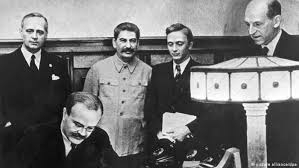
In any case, what happened next blows a hole in Mr. Bell-Villada’s thesis. In August 1939 the determined anti-fascists and the resolute anti-communists got together to sign a non-aggression pact, and the Soviet Union started providing matériel to help Hitler wage his war against the West, including, of course, the Battle of Britain. The conflict joined was now a battle against imperialism, not fascism. Alas, the truth that Molotov and Ribbentrop came together to sign a pact that immediately turned the remnants of a Popular Front into a Highly Unpopular Devils’ Alliance has long been forgotten by many eager armchair observers.
So what was the Times Book Editor thinking? I suspect he (or she) didn’t really take it all in: the apparent message rang a bell in his head that Communism would have defeated Fascism, and that war would have been averted, and Europe would have been a better place for it if only the West had reached out to Stalin. The vague regret about the implosion of communism that imbues the Times editors must have overtaken him. That is a common opinion of the American Leftist intelligentsia. After all, this is the newspaper that instructs its journalists to report the catastrophe of Nicolás Maduro’s dictatorship in Venezuela as his ‘mismanagement of the economy’, carefully avoiding the ‘S-word’ of ‘socialism’ (which might turn out to embarrass Bernie Sanders), as if the moustachioed Marxist caudillo were merely an incompetent version of John Major.
And it does not appear that Mr. Bell-Villada has even read the book. He is allowed to assume that Lynne Olson’s review offers a comprehensive summary of Bouverie’s account. The nature of Mr. Bell-Villada’s credentials for offering an opinion on this matter is not clear, however: he offers a suitable Massachusetts address, but his Wikipedia entry describes him as ‘an American literary critic, novelist, translator and memoirist, with strong interests in Latin American Writing, Modernism, and magic Realism’. Bell-Villada (the entry goes on to say) has been a professor at the private liberal arts Williams College since 1975. No apparent degree in modern history is evident in his curriculum vitae, although he does hold a mysterious doctorate from Harvard.
Analysis
It happened that I had read both Lynne Olson’s review and Bouverie’s book. Bell-Villada is correct about Olson: the Soviet Union and Communism get nary a mention in her review. Yet Bouverie is hardly expansive in his coverage either. He repeatedly refers to Chamberlain’s ‘distrust’ of the Russians, but discusses the antipathy for Bolshevism in mainly impersonal terms: “ . . . the western Powers needed to reach an understanding with Soviet Russia, a nation widely distrusted and against which Nazi Germany had originally been conceived as a bulwark.” (p 334). (Note the evasive passive voice.) Yet, on the following page, Bouverie undermines the nature of what such an ‘understanding’ might have taken, referring to events as late as April 1939: “The Foreign Policy Committee could see no advantages in an alliance with Russia – on the contrary, such a move was likely to perturb allies in eastern Europe – and, although Chamberlain had assured the Labour leadership that he had ‘no ideological objection to an agreement with Russia,’ he admitted privately to being deeply suspicious of her.”
‘No ideological objection’? ‘Suspicious?’, when the state that Lenin founded was pursuing the extermination of capitalists like him? This shows another gutless aspect of Chamberlain, who believed that dictators could be transformed to behave like English gentlemen. Was he more suspicious of Stalin than he was of Hitler? In that case, why not respond more robustly? Neville Chamberlain was not known for his intellectual stature, but that sounds more like a move to ‘appease’, or reconcile with, his Parliamentary opposition rather than the reflection of any political principles. Nevertheless, if Chamberlain had been prepared to discard Czechoslovakia because of ‘a quarrel in a far-away country between people of whom we know nothing’, he would have been unlikely to want to establish an association with the even more mysterious and inscrutable Russians, and explain it to his electorate. If he had found it difficult to find a common level of discourse with Hitler, and had been betrayed by him, it would have been an even worse struggle with Stalin. Chamberlain was out of his depth. If he and Stalin had abandoned parleys, and resorted to an arm-wrestling match, I would have instantly put my money on the Gremlin from the Kremlin rather than on the Birmingham Bruiser.
Unfortunately, Bouverie offers only a very superficial analysis of Britain’s relationship with the Soviet Union, in an Epilogue titled ‘Guilty Men’. But he gives a hint to where his unsubstantiated opinion resides, in a paragraph that might put some air behind Bell-Villada’s sails (p 415): “The failure to perceive the true character of the Nazi regime and Adolf Hitler stands as the single greatest failure of British policy makers during this period, since it was from this that all subsequent failure – the failure to rearm sufficiently, the failure to build alliances (not least with the Soviet Union), the failure to project British power, and the failure to educate public opinion – stemmed. For defenders of appeasement, this is an exercise in ahistoricism. It was not until after Hitler tore up the Munich Agreement and marched into Prague, they argue, that he demonstrated his mendacity, while the full horrors of the Nazi regime only became apparent after the end of the war.”
Yet Bouverie does not substantiate this claim. Does he think that Chamberlain ‘failed to perceive the true nature of the Soviet regime’, as well? He does not say. Bouverie cites three paragraphs from Sir Warren Fisher’s ‘damning survey’ of British foreign policy, delivered in 1948, but Fisher omitted the Soviet Union in his castigation of the failure of ‘the British Empire, the United States and France’ to face the facts in unison. Earlier, Bouverie explained that the Chiefs of Staff had made an about-turn about the role of the Soviet Union when Molotov replaced Litvinov as Foreign Minister, and feared a rapprochement between the Germans and the Soviets, and that such arguments swayed Halifax and most of the Cabinet into responding to Soviet overtures. Yet this was probably too late, and largely a bluff. In a well-written book on Chamberlain, Neville Chamberlain and Appeasement by Larry Williams Fuchser (a 1982 volume strangely missing from Bouverie’s bibliography), the author shows his opinion of how unimportant negotiations with the Soviet Union were. He spends only two brief sentences on the topic. Fuchser indicates that it was the pliable Halifax, at the bidding of Cadogan and the Foreign Office, who pushed for this approach, but then enigmatically adds: “Chamberlain was forced into these negotiations quite against his will, and it is clear that in this respect at least, he had lost control over British foreign policy.”
This does not make complete sense, however, as the remainder of Fuchser’s thesis is that Chamberlain maintained tight control over a sycophantic inner Cabinet, a compliant Foreign Policy Committee, and a loyal party apparatus. Thus we have to return to Chamberlain’s sudden lack of resolve: if he was not able to stand up to his Labour opposition, the Foreign Office, and his Chiefs of Staff, what hope did he have of standing up to Hitler or Stalin? Why did he simply not veto any attempt to reach out to the Soviets? It was not as if Halifax was going to resign in a flash of pique (as if that mattered), as Eden had done. It is true that Chamberlain felt handicapped by the French, because of her agreements with the Poles and the Soviet Union, but he was overall prepared to reject the French implorations. Fuchser and Bouverie both point out that Alexander Cadogan, the Permanent Under-Secretary at the Foreign Office, wrote in his diary that Chamberlain ‘would rather resign than sign alliance with Soviet’. ‘Appeasement’ is sometimes domestic political compromise – and not always a necessary act.
Thus it would have been better to have sent no mission at all rather than the underpowered and underauthorised Slow Boat to Leningrad that resulted, and which failed to impress Voroshilov and company. That misguided venture encourages Bouverie, however, to make his dubious conclusion: “Unlike his successor, he [Chamberlain] treated the United States with frigid disdain, while his failure to secure a deal with the Soviet Union stands out as among the greatest blunders in that calamitous decade.” But it wasn’t ‘failure’: Chamberlain was never serious. And what kind of a deal with the unscrupulous Stalin would have made sense? The independence of the Baltic States was a major bone of contention. And what would happen if Stalin had still invaded Finland, for instance? Again, Bouverie does not explain.

One of the historians with whom I am familiar is A. J. P. Taylor. Taylor studied this period in his much-cited 1961 work, The Origins of the Second World War. This is a book that needs to be used cautiously, however, since Taylor notoriously came up with some bizarre and controversial judgments. For example, he presented some equivocal and provocative opinions, such as: “The blame for war can be put on Hitler’s Nihilism instead of on the faults and failures of European statesmen – faults and failures which their public shared. Human blunders, however, usually do more to shape history than human wickedness.” Such vague attributions of guilt and responsibility are highly dubious and unconvincing. In addition, Taylor could be infuriating when he made lofty generalisations about ‘the British’ and their assumed intentions, when in the next sentence he would analyse the differences of opinion that existed in various politicians and diplomats, and which thus contributed to indecision. (Taylor deployed too much use of the passive voice for my liking.)
Yet Taylor could provide trenchant and pithy insights as well, worthy of essay-type ‘Discussions’. “Both sides wanted agreement, but not the same agreement. The British wanted a moral demonstration which would enable them to reach a settlement with Hitler on more favourable terms. The Russians wanted a precise military alliance for mutual assistance, which would either deter Hitler, or secure his defeat”, he wrote, in the relevant Chapter Ten of Origins. And his conclusion to this chapter ran as follows: “Alliances are worth while when they put into words a real community of interests; otherwise they lead only to confusion and disaster, as the French alliances did. It was inconceivable, in the circumstances of 1939, that the British should commit themselves, irretrievably and decisively, in favour of Soviet Russia as against Germany; and equally inconceivable that the Russians should commit themselves to defence of the status quo.” That judgment is sound and clear, notably so, given Taylor’s own communist sympathies.
Later, in 1965, in English History 1914-1945, Taylor gave a more guarded explanation of what happened. He suggested that the Soviet Union made demands for reciprocity in its approaches to France and Germany, and that Chamberlain dithered, not only because of distaste of communism, but owing to the pressure of public opinion, and the appeals of such as Lloyd George – a now familiar refrain. In addition, Taylor raised the important spectre of the Soviet Union’s invading Poland and the Baltic States under the mantle of an agreement with the democracies, which would have been a bitter pill for Chamberlain to have swallowed and explained to his constituents. Taylor significantly repeated his earlier conclusion that the Soviet Union was as unenthusiastic about an alliance with the United Kingdom and France as the latter were themselves.
How has historical research advanced in the past fifty years? The theme of a missed opportunity has been picked up since by many other historians, some of whom have had access to Russian archives. For instance, in 1999, Michael Jabara Carley wrote 1939: The Alliance That Never Was and the Coming of World War II (a work apparently uninspected by Bouverie) and in 2018 followed up with a paper in International History Review titled Fiasco: The Anglo-Franco-Soviet Agreement That Never Was, and the Unpublished British White Paper, 1939-1940, The latter explores these events in great depth, and points to rifts between France and Britain in the response to the Soviet approach, and describes a White Paper on the failed negotiations that was suppressed by Chamberlain.
Unfortunately, Carley’s work is representative of the fashionable academic left (including, no doubt, Mr. Bell-Villada), emphasizing the themes of ‘co-operation’ with the Soviet Union, attributing the distaste for communism to Britain’s ‘elites’, and ignoring the fact of how unreliable a signer to an agreement Stalin would have been. Chamberlain and other conservatives are classified as ‘hard-core Sovietophobes’, as if their distaste were a dire medical condition rather than a serious and justified ideological opposition. Carley supposes the existence of Soviet ‘views’ towards Britain and France, as if the country had vigorous parliamentary debates, a free press, and public opinion polls. He appears to think that Soviet military ‘assistance’ to adjoining countries from the Black Sea to the Baltic would have been welcomed, and somehow beneficial. He reports that the Soviet Union had one hundred divisions to deploy, while Britain and France had only two, but treats seriously Stalin’s suggestion that he did not want be ‘left in the lurch to face Nazi Germany alone’. Carley is far more trusting of Stalin’s objectives in a military alliance than he is of Chamberlain’s justified scepticism about it. Stalin’s replacement of Litvinov (a Jew) by Molotov at the end of April is attributed to British ‘stalling’ to Stalin’s offer of a couple of weeks before rather than interpreted as a signal that Stalin meant at that point to do business with the Germans (as has been pointed out by other historians). He says nothing about Stalin’s access to Britain’s diplomatic thinking by virtue of spies in the Foreign Office (notably John Herbert King). In summary, according to Carley, the signing of the Ribbentrop-Molotov pact was all Chamberlain’s fault.
If this is the current state of research on the crisis of the late 1930s, it is highly regrettable. The controversy over the missed opportunity would have been a highly profitable avenue for a contemporary historian to pursue, perhaps investigating the counterfactual history that would have evolved if a Soviet-Franco-British alliance had had any teeth. Would they have had to declare war on Germany in September 1939? And, since the retrospective judgment of the Soviet Union is that it signed the pact in order to gain time and rebuild its armed forces, would it really have wanted to engage Germany on foreign soil in 1939? Threatening joint hostilities would surely have not deterred Hitler, or brought Europe to peace. Hitler would not have abandoned his plans for Lebensraum. What would the Poles have done if the Red Army invaded its territory? How would a land assault on Germany by French and British forces have fared? Would Hitler have had to conduct a war on two fronts, or would he have been able to reverse his strategy, fighting the Soviet Union first before invading France and Belgium? Life would still have been made intolerable for millions of innocent civilians from Finland to Bessarabia, and Hitler would certainly not have stayed his hand over Dunkirk when he had the chance to eliminate the British Expeditionary Force. (I expect some military historian has already explored such scenarios.)

In summary, Appeasement is a very readable, and imaginatively composed, book. The author is a fresh-faced young journalist who was educated at my alma mater, Christ Church, Oxford, gaining a degree in history. He has exploited a rich range of sources – works of history, both familiar and obscure, private and public archives, memoirs, articles and dissertations (though almost exclusively written in English) to write a fascinating account of a still controversial period in the nation’s history. Yet debates continue about responsibilities and blame for what was a very complex challenge in allowing Hitler to advance his plans as he did, and I do not think Bouverie sheds any fresh light on the matter, and does not provide support for his conclusions. Despite the extraordinary parade of puffs from distinguished historians on the back-cover (Kershaw, Frankopan, Moorehead, Hastings, Macmillan, Beevor and Fraser), I do not regard Appeasement as a major work of history bringing innovative research to the table. But it prompts me to inspect now one or two aspects in more detail.
Lewis Namier
As an example, I quote again from Bouverie’s Epilogue, where he cites several leading figures (e.g. Boothby, Churchill, Warren Fisher) who apparently held the opinion that, with greater diplomatic skills, war could have been averted (p 410). Among these he lists the historian Lewis Namier, who (he says) believed that ‘at several junctures it could have been stopped without excessive effort or sacrifice’. Well, this sounded to me a point at which a book should begin, not end. I knew of Namier (mainly through my study of Isaiah Berlin), but had not read any of his books. This statement came from Diplomatic Preludes: I thought it might address several questions on my mind, so I obtained the volume from the local university library.
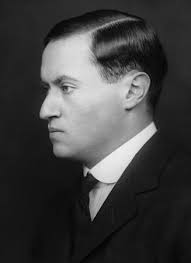
The Introduction and Outline of Namier’s book contains the following passage (which I recorded in my August Commonplace file): “The issue of a crisis depends not so much on its magnitude as on the courage and resolution with which it is met. The second German bid for world dominion found Europe weak and divided. At several junctures it could have been stopped without excessive effort or sacrifice, but was not: a failure of European statesmanship. Behind the German drive were passionate forces, sustained by obsessionist, sadistic hatreds and by a cruel ideology; to these the Germans, whom defeat had deprived of their routine of life, showed even more than their usual receptivity, while the rest of Europe had neither the faith, nor the will, nor even sufficient repugnance, to offer timely, effective resistance. Some imitated Hitler and hyena-like followed in his track; some tolerated him, hoping that his advance would reach its term – by saturation, exhaustion, the resistance of others, or the mere chapter of accidents – before it attained them; and some, while beholding his handiwork, would praise him of having ‘restored the self-respect of the Germans’. Janissaries and appeasers aided Hitler’s work: a failure of European morality.”
And that’s it. There was nothing else in the book to back it up – just these windy, abstract statements about ‘European statesmanship’ and ‘European morality’. (I do not know what is meant by those entities. History is made by individual agents contributing to events.) I found the rest of the book, which describes only the events of 1938 and 1939, practically unreadable, and utterly useless in illustrating the claims that Namier made in his Introduction. So why would Bouverie choose to extract such a vague and unsupported assertion to bolster the rather thin conclusion to his book? Exploring this idea might have led to something valuable.
Maybe Namier wrote about appeasement in more depth elsewhere. (Bouverie lists In the Margin of History as a primary source, but I have not been able to inspect it.). So I dug around. In his essay on Namier, published in Personal Impressions, Isaiah Berlin gives a glimpse of how his friend really thought:
“He spoke bitterly about the policy of appeasement. He felt that their sense of reality and their empiricism had evidently deserted the ruling classes in England: not to understand that Hitler meant everything he said – that Mein Kampf was to be taken literally, that Hitler had a plan for a war of conquest – was self-deception worthy of German or Jews. The Cecils were ‘all right’; they understood reality, they stood for what was most characteristic of England. So was Winston Churchill. The men who opposed Zionism were the same as those who were against Churchill and the policy of national resistance – Geoffrey Dawson, the editor of the Times, Chamberlain, Halifax, Toynbee, the officials of the Foreign Office, Archbishop Lang, the bulk of the Conservative Party, most trade unionists. The Cecils, Churchill, true aristocracy, pride, respect for human dignity, traditional virtues, resistance, Zionism, personal grandeur, no-nonsense realism, these were fused into one amalgam in his mind. Pro-Germans and pro-Arabs were one gang.”
This was progress, at least, the recognition that in a pluralist society, many different standpoints contribute to eventual policy-making, rather than ascribing causation to the abstraction of ‘European morality’. Namier identified some of these agents. Yet I found it too stereotyped: ‘the ruling classes’ – who are they? Why should a hesitation about the merits of Zionism automatically be assumed to indicate a sympathy for Hitler? Surely opinions were more complex than this? Indeed, Berlin mentions that Namier used to harangue ‘pen-pushers of the Foreign Office’ and ‘the hypocritical idiots of the Colonial Office’ at his club, the Athenaeum, and do more harm than good by his supplications. And did Namier really understand the various aspects of what ‘appeasement’ meant?
Interestingly, elsewhere in this essay, Berlin draws attention to Namier’s failings as a historian. “He believed that objective truth could be discovered, and that he had found a method of doing so in history; that this method consisted in a sort of pointillisme, ‘the microscopic method’, the splitting up of social facts into details of individual lives – atomic entities, the careers of which could be precisely verified; and that these atoms could then be integrated into greater wholes. This was the nearest to scientific method that was attainable in history, and he would adhere to it at whatever cost, in spite of all criticism, until and unless he became convinced by internal criteria of its inadequacy, because it had failed to produce results verified by research.” Berlin then concludes that Namier then integrated his atomic facts ‘with a marvellous power of imaginative generalisation’, lacking the skills of a narrative historian.
Is ‘imaginative generalisation’ a feature to be admired in historians? Maybe not so much these days, Sir Isaiah. (Berlin was rather good at that stuff himself, as was Taylor.) As another example of Namier’s shortcomings, in his memoir Bird of Passage, Rudolf Peierls reinforced the impression that Namier gave of theatrical vagueness when he wrote: “He was very fond of saying ‘we’. And you had to be very alert in following the course of the conversation to know whether at the given point this meant the University of Manchester, All Souls College, Oxford, the Jews, the Foreign Office, or Poland.” Such ways of thinking do not lead to historical precision. I do not believe Namier is a productive and reliable source. But very shrewd on Peierls’ part.
An Alternative Approach
My first exposure, therefore, to one of Bouverie’s influences was not positive. Moreover, I think Bouverie overlooks the fact that ‘appeasement’ (like ‘remembrance’, which can mean both ‘recalling from experience’ and ‘commemoration’) carried two clear meanings in the 1930s – ‘pacification’, and later ‘conciliation’. (This is a point that David Dilks made: “The word in its normal meaning connotes the pacific settlement of disputes; in the meaning usually applied to the period of Neville Chamberlain’s premiership, it has come to indicate something sinister, the granting from fear or cowardice of unwarranted concessions in order to buy temporary peace at someone else’s expense.”) The ambivalence is shown in the fact that the book, titled Appeasing Hitler in the UK (which does not do justice to the policy as pursued), was re-titled Appeasement in the USA (when it is not a study of appeasement in general), with an odd subtitle (Chamberlain, Hitler, Churchill and the Road to War) that suggests that Churchill was party to the process. Thus the fact that much of Baldwin’s and Chamberlain’s policy, spurred by their deep desire to avert a repeat of the WWI carnage, was motivated by an honourable desire to bring a stable peace to Europe, and only later sharply criticised as a shabby propitiation of Hitler’s and Mussolini’s demands, is overlooked by Bouverie.
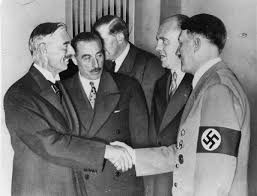
I have read only a handful of the book in Bouverie’s Bibliography, but, if I were striving for a methodological approach to the challenge of defining when the policy of appeasement might have taken a different course (Namier’s ‘junctures’), I would need to bring some structure to the environment, along two axes. The first would offer a time-line, listing the critical events by which Hitler’s growing belligerent moves became more obvious and threatening. The second would attempt to profile the varieties of opinion that existed in influencers and policy-makers in Britain’s pluralist society. Indeed, from studying materials such as Bouverie’s, one can track how the opinions of individual factions did evolve in the light of events on the Continent. (Some historian may have already analysed the period under such a structure, and I apologise if I have overlooked such a study.)
I would start with Hitler’s accession to power in 1933 – a grab, but performed with some democratic authority. At that stage, observers should have sat up to take the Austrian more seriously. Here follow what I would classify as the main events that western politicians should have addressed and analysed:
- The Publication of Mein Kampf: Hitler’s book was published in Germany in 1925 and 1926, but did not appear in English until 1933, in a heavily abridged version. As Bouverie relates, the Ambassador to Germany, Sir Horace Rumbold, immediately after Hitler’s accession, warned the Foreign Office of the threats inherent in Mein Kampf, but he was largely ignored. Indeed, many politicians did not even read the English version until too late (see ‘Who read Mein Kampf?’)
- German Rearmament (1): Brigadier Temperley, who had attended the Geneva Disarmament Conference in 1932, pointed out in 1933 that Germany’s development of over a hundred fighter airplanes was in contravention of the Treaty of Versailles.
- Withdrawal from the League of Nations: Germany withdrew in October 1933, in protest against its members’ refusal to allow the country to achieve military parity.
- The Night of the Long Knives: In June-July 1934, Hitler showed his ruthlessness by purging Ernst Röhm’s Sturmabteilung, seeing it as threat to his own power
- The Murder of Dollfuß: Having banned the Austrian Nazi party, Dollfuss, the Chancellor Austria was assassinated in July 1934 by Nazi agents.
- German Rearmament (2): On March 16, 1935, Hitler openly announced that Germany would build an airforce, and begin conscription, in violation of the Treaty of Versailles.
- Anglo-German Naval Agreement: This agreement was signed on June 18, 1935, and set out to regulate the size of Hitler’s Kriegsmarine in relation to the Royal Navy.
- Italian Invasion of Ethiopia: On October 3, 1935, Hitler’s fascist ally Mussolini invaded Ethiopia, showing his imperial ambitions. The inability of the League of Nations to respond emphasised its hollowness.
- German Reoccupation of the Rhineland: In violation of the Treaties of Versailles and Locarno, Hitler’s forces remilitiarised the Rhineland on March 7, 1936, including a considerable swath of land on the right bank.
- Fortification of the Western Wall: Soon after the militarisation of the Rhineland, Hitler started a project to fortify the old Siegfried Line.
- Aid to Franco in Spanish Civil War: Immediately the war started, in July 1936, Hitler sent in troops, aircraft and material to aid the Nationalist effort.
- Hitler’s Assumption of Control of Army: With the sacking of Field Marshal von Blomberg and General von Fritsch in January 1938, Hitler made himself Supreme Commander of the Army.
- The Anschluß: On March 12, 1938, Austria was annexed into Germany, a process forbidden by the Treaty of Versailles.
- The Expropriation of the Sudetenland: In October 1938, the Sudetenland (a primarily German-speaking part of Czechoslovakia that had once been part of Austria) was assigned to Germany.
- The Munich Pact: On September 30, 1938, Chamberlain and Daladier signed the pact with Hitler, effectively handing over Czechoslovakia to the Germans.
- Kristallnacht: On November 9-10, 1938, The Germans oppressed Jewish homes, businesses and synagogues, killing about a hundred Jews throughout Germany.
- The Invasion of Czechoslovakia: The Germans invaded Czechoslovakia on March 15, 1939.
- The Nazi-Soviet Pact: Molotov and Ribbentrop signed a pact of non-aggression on August 23, 1939.
- Invasion of Poland: The Nazis invaded Poland on September 1, 1939, thus triggering a declaration of war by Britain.
- Extermination of Jews: On December 16, 1939, The Times made its first report on the mass execution of Jews, in Lublin.
Next, the profiles of political figures. One must remember that the United Kingdom, in trying to forge policy, had to consider the opinions of the leaders of its Dominions, as well as those of its allies in Europe. In addition, Roosevelt started to poke in his oar at the beginning of 1938. I shall restrict myself here to the spectrum of opinion within Britain itself. I would classify it as follows, with examples of the main adherents:
- Complete agreement with Nazi policies (Mosley; Londonderry)
- Sympathy for fascism, but essentially patriotic (Dawson)
- Universal Christian pacifism (Lansbury)
- Pious abdication of leadership (Baldwin)
- Labour distaste for Nazi policies, but essentially pacifist (Attlee)
- Liberal admiration for Hitler’s reconstruction of Germany, but opportunistic and hypocritical over the Soviet Union (Lloyd George)
- Labour distaste for totalitarianism, and stressing rearmament (Bevin)
- Tory disdain for Hitlerism, sympathy to German grievances, but confident it can be stopped via good will (Chamberlain)
- Vague impressionable Tory piety (Halifax)
- Realistic abhorrence of Hitlerism (and Communism), and urging re-armament (Churchill)
- Distaste for Hitlerism, and unwilling to negotiate with dictators (Eden)
- Belief in Communism as only valid anti-fascist force (Pollitt)
This segmentation is necessarily simplistic, but serves to show how fragmented political opinion was. (I hope it carries enough ‘imaginative generalisation’ to satisfy Berlinian requirements. It may attribute a depth of political thinking to such flabby figures as Halifax and Eden that they perhaps do not merit.) Moreover, opinions evolved. Attlee became more militaristic after the Sudetenland episode; Lord Londonderry, a diehard fascist supporter, was revolted by Kristallnacht; Chamberlain had to swallow his previous idealistic notions after the Munich agreement was shown to be empty; Lloyd George suddenly switched his affiliations to Moscow after the invasion of Czechoslovakia, and made personal remonstrations to Chamberlain about an agreement with the Soviet Union, as did Churchill, supported by Vansittart; all but Halifax and the diehard corps of the Conservative Party rallied to Chamberlain after war was declared; several prominent Communists (such as Goronwy Rees) abandoned the Party when the Ribbentrop-Molotov pact was signed; Mosley was interned, but renounced support for Hitler when he understood the nature of Hitler’s aggression; Churchill remarkably overlooked his hatred of Communism when Germany invaded the Soviet Union. What should also be remembered, however, is that before the war Chamberlain used his authority to apply great pressure on the media to support his policy of trying to contain Hitler, which helped to stifle any oppositionist communications to the mases.
Nevertheless, one can accept that, at a certain stage, opinion might have consolidated around a strategy of deterrence of Hitler, of sending him a message that continued infractions of international treaties would not be tolerated, of showing a degree of force before the dictator had been able to assemble any comparable military strength of his own, of pointing out to the German people that a resurgence of imperial aggression across Europe would not be tolerated. For Hitler was a bully: and bullies will continue to flex their muscles until they meet resistance. Indeed, they will interpret a failure to resist as a sign of weakness, and an encouragement of the policies that brought them to where they are.
I would select the remilitarisation of the Rhineland as the critical event that should have turned the tables. Hitler had been given enough benefit of the doubt by then, and the seriousness of his aggressive ambitions was clear. This was a territorial push, the first implementation of his objectives for Lebensraum. Yet Hitler’s military strength was poor: he had not yet built a competent and extensive army. The French forces were larger and stronger. Hitler did not yet have access to the munitions factories of Czechoslovakia. And when the French army moved, Hitler blinked. Repulsing this German incursion would not necessarily have meant war. Yet nothing happened. The entry of Hitler’s troops into the Rhineland, and the failure of France and Britain to take action, removed the last obstacle to the defence of the west. The Treaty of Locarno in 1925 had committed Britain, France (and Italy) to guaranteeing the Franco-German border against ‘flagrant violations’. It is difficult to imagine what could constitute a more flagrant violation than this move of Hitler’s. William Shirer was one journalist who at the time recognized the pivotal chance that had been allowed to escape.
As Bouverie explains, the Rhineland exploit had not come as a surprise. The instincts of the newly appointed Foreign Secretary, Anthony Eden, were to honour the Locarno Treaty arrangements, and come to France’s aid if she requested help. But he dithered, despite hawkish views from such as Vansittart in the Foreign Office, and spoke against any action by France against Germany. As Bouverie writes: “Despite stating in a memorandum to the Cabinet on March 8 – the day after the invasion – that Hitler could no longer be trusted to abide by treaties even when they had been freely entered into, he nevertheless, and contradictorily, argued that the Government should use this opportunity ‘as far-reaching and enduring a settlement as possible whilst Herr Hitler is still in the mood to do so.” (p 87)
Moreover, the public had not been prepared. Maynard Keynes’s The Economic Consequences of the Peace was still an influential book, arguing that the cost of reparations on the German people was too punitive, and they could not be expected to provide such wealth in an effective state of slavery. His book was misunderstood, and criticised at the time. The problem was that politicians such as Chamberlain and Baldwin were not imaginative enough to recognize that, while the scale of reparations may have been a mistake, it did not mean that Germany should be allowed to break other treaty-defined obligations, rearm itself as an aggressive power, and make incursions into the territories of its neighbours. Such subtleties were thus lost on the British public: Bouverie records that the Dean of Chichester believed that ‘the ordinary man almost breathed a sigh of relief when he heard that Hitler had entered the Zone.’ Hitler gained further confirmation of the pusillanimity of the British and French.
The crux of the matter is that Chamberlain has come to be defined by Appeasement, as Eden was by Suez, and Cameron will be by the Referendum. The man they called the ‘Coroner’ has borne the brunt of the failed policy. In his tenure as Prime Minster, Chamberlain tried to impose his will by creating a Cabinet dominated by sycophants, and undermined those who stood up to him, such as Duff Cooper and Eden. But at least he had a policy, however misguided it was, unlike Baldwin. In a recent Literary Review article, Professor Cornwall observed that Chamberlain ‘believed that a European war should be avoided because Sudeten German grievances were basically credible’. That may have been so, but the damage had been done long before. Again, it must be remembered that Chamberlain did not become Prime Minister until May 1937. The failures went back many years.
Thus an innovative and scholarly approach might investigate whether and why Chamberlain was able to exert such an influence on foreign policy when he held only the office of Chancellor of the Exchequer. For example, did his control of the purse-strings allow him to hinder or help the cause for re-armament? A recent book by Lord Lexden, Redressing the Balance, tries to restore Chamberlain’s reputation by inspecting the many reforms that he helped implement before the dire days of Munich for which he is remembered, and even claims that his delaying tactics actually helped prepare the British Empire for the inevitable conflict. A fresh inspection of Chamberlain’s influence before he became Prime Minister, and of his timidity over the Soviet Union in the face of the War and Foreign Office pressure in the summer of 1939 might have provided a dramatic new addition to the historical record.
Dealing with Stalin
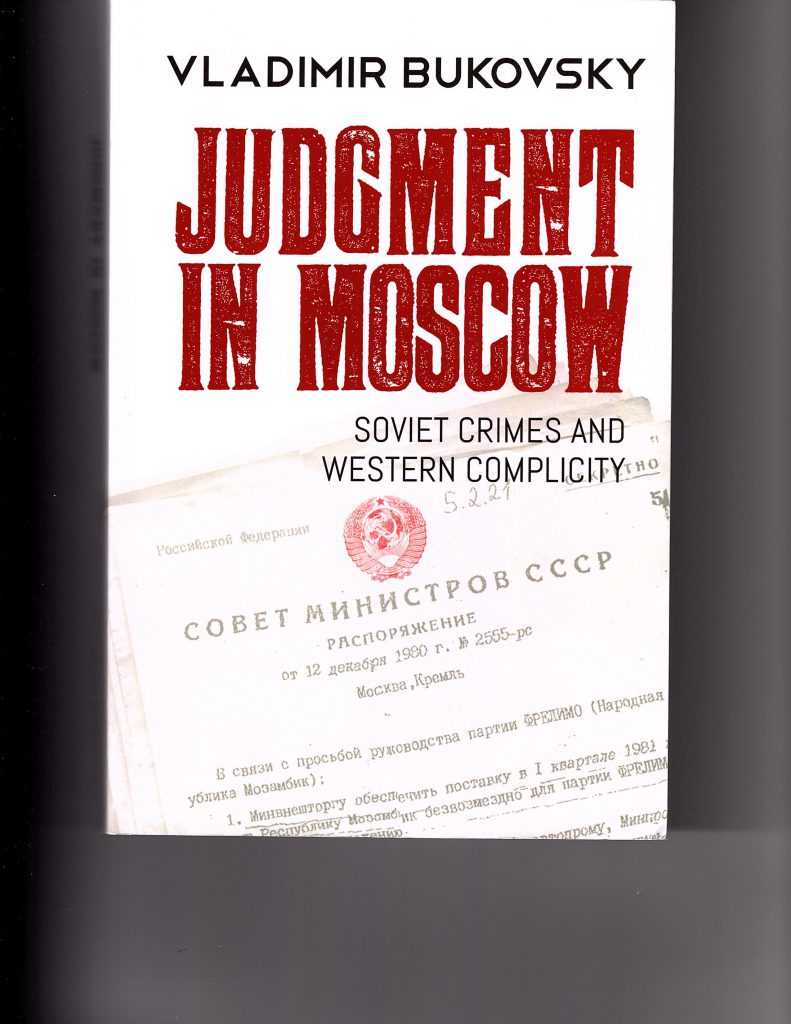
Moreover, Britain would have had to deal with Stalin eventually. I have recently been reading Vladimir Bukovsky’s penetrating study of the Politburo’s manipulation of western opinion, Judgment in Moscow, which explores how the intellectual dupes of the western democracies were taken in by the siren songs of ‘co-operation’, ‘peace’ and ‘détente’, all designed to be implemented on the Kremlin’s terms. Written over twenty years ago, it has only just been published in English. It is an absolutely indispensable volume to be read by anybody who wants to understand the sham of ‘perestroika’ and ‘glasnost’, and the fraudulent behaviour of Gorbachev, leading to the resurgence of kleptocratic communists in the control of Russia. My only regret about this work is that its detailed analysis picks up only around 1970, whereas the propaganda campaign went back to the Second World War. In any case, Bukovsky writes: “Ironically, the architects of Ostpolitik are being touted as heroes and are claiming that the downfall of communism in the East was a product of their ‘delicate’ games with Moscow. This is shameless beyond belief. According to such criteria. Neville Chamberlain could have declared himself the victor in 1945, as peace with Germany was finally reached.”

Of course, poor Chamberlain died in November 1940 of stomach cancer, so did not live to see that irony played out. Yet the analogy is clear – a clear case of post hoc non propter hoc. Bukovsky explains how the shameful policy of détente needlessly prolonged the lives of the communist regimes, and echoed the decades-long practice of the West’s attempts to come to grips with its adversary by taking its implorations for ‘peace’ seriously.
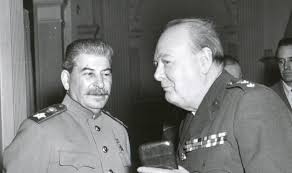
I have written before about the futility of trying to build a culture of ‘co-operation’ with an agency whose objectives are in fact to help the tide of history in trying to destroy you. (See https://coldspur.com/krivitsky-churchill-and-the-cold-war/) Yet immediately the Soviet Union became an ally in the war against Germany, Britain (and then the United States) had to deal with Stalin’s untrustworthiness, duplicity, and propagandizing, and her representatives seemed incapable of countering the Generalissimo’s demands for fear of upsetting him, performing damage to the war effort, and even possibly pushing him back into Hitler’s arms. (Such negotiations did in fact happen later, through Switzerland and Sweden, but they were initiated by the Nazis through third parties when they had effectively seen the writing on the wall.)
Stalin was ungracious about Churchill’s offer of material aid (which the nation could not afford) after Barbarossa, and immediately (July 1941) started making demands for a ‘Second Front’, ignoring the fact that the British Empire was engaged on several fronts already. Beaverbrook and Harriman made lavish promises to Stalin in person, in October 1941. Despite informing Churchill in September that the Soviet Union was ‘on the point of collapse’, Stalin arrogantly insisted on a statement of ‘war aims’ in November, to which Churchill meekly offered ‘co-operation’. Stalin threatened Ambassador Clark Kerr that he might seek peace with the Germans if the Allies did not help him more. He asked for (and received) legitimisation of the Soviet Union’s extended borders in the Baltics. He made incessant and offensively-worded demands for the highly dangerous convoy system to be resumed. He ferociously placed the guilt for the Katyn massacre on to the Germans: Churchill knew that was a lie, but did nothing. Stalin was insincere about the exchange of intelligence, demanding much, but revealing little. He undermined the Polish government-in-exile, and captured their representatives in Warsaw. To Churchill he expressed ‘shock’ on hearing of the Warsaw uprising, and his forces stood by. He used his spies in the governments of the United Kingdom and the United States to undermine his allies’ negotiating tactics over the future of the central states of Europe shortly to be ‘liberated’ by the Soviets. He was ruthless over the return of prisoners-of-war to the Soviet Union. And the Iron Curtain fell.
Indeed, on July 18, 1943, Anthony Cavendish-Bentinck, the chairman of the Joint Intelligence Committee, warned that the appeasement of Stalin closely resembled the previous attitude to Hitler. But by then, it was again too late. British influence was diminished by then, with the resources of the United States influencing the outcome of the war. The vain, ingenuous and sickly Roosevelt was calling the shots, sometimes influenced by his mischievous wife. He undermined Churchill, believing that he alone knew how to manage Stalin. Shortly before he died in April 1945, Roosevelt acknowledged that Stalin had betrayed all his Yalta promises, and that he was not a man he could do business with any longer.
Yet I believe that Churchill must be held largely responsible. When Barbarossa occurred in June 1941, he immediately sent a message of support to Stalin, without consulting his Chiefs of Staff. That was fine as a gesture, indicating the shared campaign against Naziism – which Churchill rightly rated as a direr threat than Communism at the time. But I wonder, if he had visited the Kremlin soon after, whether a speech along the following lines might have set expectations a little straighter without damaging the war effort:
“Marshall Stalin: You may recall that, on June 22, when ‘the monster of wickedness’ invaded your country, I stated to the House of Commons that ‘the Nazi regime is indistinguishable from the worst features of Communism’, and I declared that I, as the most consistent opponent of Communism for twenty-five years, would unsay no word that I have spoken about it. Yet I then reached out to the long-suffering Russian people, and offered them ‘any technical or economic assistance which is in our power’.
Let me now explain further. We have watched your experiment with communism with the gravest dismay. We are highly suspicious of its cruel ideology, and its determination to eradicate the freedoms of western democracy that we treasure. We have seen how you have murdered your opponents, and condemned millions to starvation in your fruitless quest to eliminate any private endeavours in agriculture. You have established a prison-camp of monstrous dimensions in which to incarcerate those who oppose your regime. We have observed your purges and show-trials with amazement and disgust, as apparently loyal members of your political and military administrations have been condemned to death on the flimsiest of pretexts. We know that you have infiltrated spies into our offices of government, intent on stealing secrets of state in order to abet your political cause. We were astonished that, having chastised the organs of German Fascism, you then made a partnership with the Devil himself, and then provided war matériel that has helped Hitler wage his aerial assault on Britain, causing thousands of lives to be lost. We were shocked by your invasion of innocent Finland, and your enslavement of the Baltic States, where you have again murdered anyone who might be considered an opponent of your proletarian dictatorship. We repeatedly warned you of Hitler’s plans to turn his aggressive impulses away from Western Europe to the Soviet Union, but you ignored our advice, or treated it as provocation.
Yet, for all this, as Hitler moves his armies across your borders, we again offer you our moral support, and the few military supplies that we can spare. Jointly, and with the hoped-for involvement of the United States ere long, we will force Hitler and his minions into defeat and submission. Yet our determination to resist the forces of communist tyranny will not fade away after the deed is done, and we hope that your involvement with us will help persuade you that your version of socialism is an insult to our common humanity.”
Would that have been over the top, and have been interrupted before Churchill was able to finish? Quite possibly. (Would the interpreter have had the guts to complete the translation?) But Stalin preferred tough talk from military officers to the appeasing noises he received from milquetoast Foreign Office men, and he might have been impressed. At some stage, of course, Churchill would have had to convince Roosevelt of the correctness of his opinions, but at least he would have made the most of his opportunity to tell Stalin what he really thought. Instead, Stalin started to make demands, and intimidate his allies. It is a failing of many democratic political leaders overendowed with vanity that they believe they can ‘do business’ with despots (Chamberlain with Hitler, Roosevelt and Churchill with Stalin, Thatcher with Gorbachev, Trump with Kim). Yet they forget that, while they themselves have to be re-elected, the tyrants endure. And as Vladimir Bukovsky said to Margaret Thatcher: “The difficulty of ‘doing business’ with communists is that they have the disgusting habit of lying while looking you in the face.”
New Commonplace entries can be found here.
